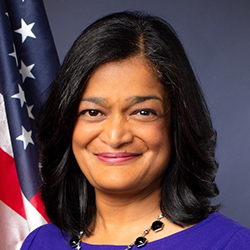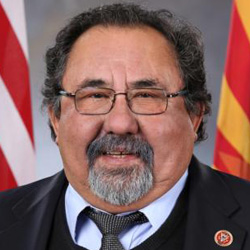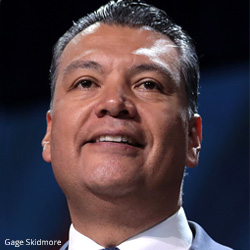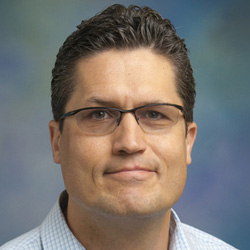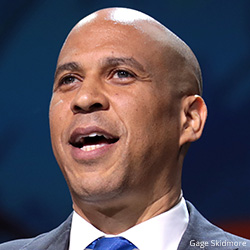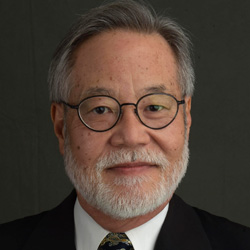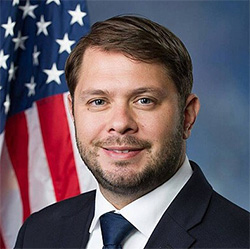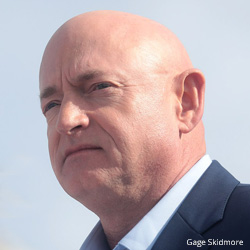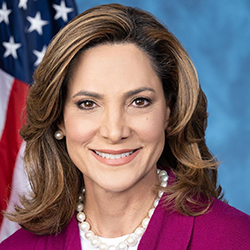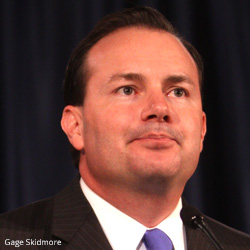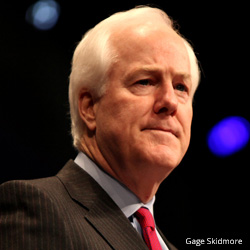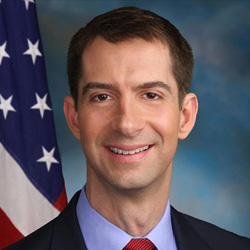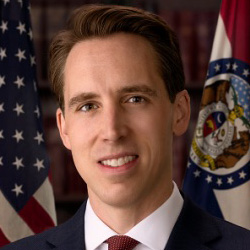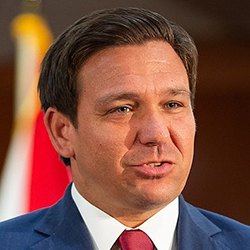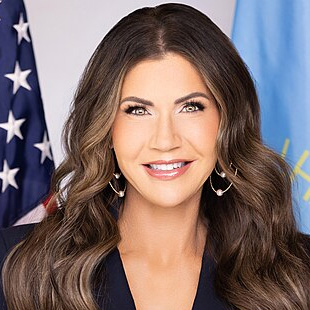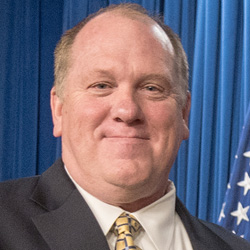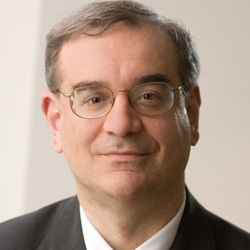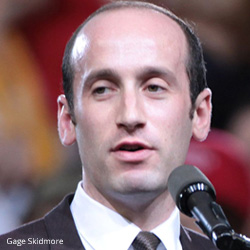Alex Nowrasteh
Director of Economic and Social Policy Studies, Cato Institute
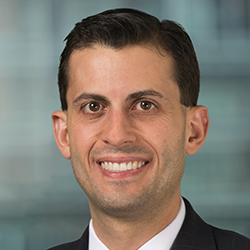
Aside from screening for “criminals, [national security] threats, [and] some diseases,” libertarian policy analyst Alex Nowrasteh believes the government should create as few barriers to immigration as possible. In a 2020 interview with Ideaspace, he summarized, “My base way of viewing immigration is that everything should be allowed, unless there’s a really good reason not to allow it.”
Nowrasteh disrupts the typical left-right debate, calling for the radical expansion of legal immigration favored by the left while adhering to the pro-market, anti-intervention stance favored by the right. In Nowrasteh’s view, the term “open borders” is not a pejorative, but instead a potential policy solution that he argues would end smuggling and unscreened migration while boosting the U.S. economy. He argues that the public perception that the U.S. lacks control over its border is false, citing the 21st century’s comparatively low levels of border migration, an exorbitantly-funded border security apparatus, and a complex and restrictive legal immigration system. Nowrasteh also supports shrinking any government welfare benefits accessible to immigrants — part of his broader approval for shrinking government welfare generally.
Studies that Nowrasteh has authored or co-authored at the Cato Institute have concluded that immigrants, both those who entered legally and illegally, are less likely than native-born Americans to commit crimes; that immigrants without a high school degree have a higher net fiscal benefit to the U.S. than native-born high school dropouts; and that immigrants consume fewer government resources in the form of welfare and benefits than do native-born Americans.
Nowrasteh has also focused significant attention on rebutting conservative arguments in favor of reducing or banning immigration to limit the risk of foreign terrorists entering the country. In an analysis of U.S. terrorist attacks between 1975 and 2017, Nowrasteh found that the chance of an American being murdered by a foreign-born terrorist within that time frame was 1 in 3.8 million per year, a number that fluctuated depending on visa category — the chance of being murdered by a refugee terrorist, for example, was 1 in 3.86 billion annually. Emphasizing that terrorism is a “serious hazard to American life, liberty, and private property,” he nevertheless concluded that the economic benefits of immigration dwarfed the economic costs of terrorism.
Nowrasteh is a vocal public figure. He frequently appears in interviews, publishes op-eds, and spars with leading immigration reductionists online, most commonly with Center for Immigration Studies (CIS) executive director Mark Krikorian. He provides counterpoints to research from conservative think tanks like CIS, the Federation for American Immigration Reform (FAIR), NumbersUSA, and the Heritage Foundation. He even fact-checks fringe and anecdotal claims, such as the time he methodically investigated former Fox News pundit Tucker Carlson’s allegation that immigrants are prone to littering (Nowrasteh’s conclusion: they aren’t). He has said that his goal is to sway public opinion away from anti-immigration sentiment, tweeting, “We’ll never convince Krikorian, but we can convince some of his twitter followers.”
SOURCES:
- Saving the Asylum System Cato Institute — April 24, 2014
- The Government Is Denying Due Process to Thousands of Detained Asylum Seekers Cato Institute — October 27, 2014
- One Year After the Southern Border Crisis Human Rights First — June 3, 2015
- How Effective Is Border Security? Cato Institute — March 19, 2016
- Why the Left and the Right Should Oppose Government Registries Cato Institute — November 18, 2016
- Trump’s Border Wall Won’t Normalize Immigration Cato Institute — November 28, 2016
- Alex Nowrasteh (Twitter) — January 6, 2017
- Alex Nowrasteh (Twitter) — May 23, 2017
- Don't End DACA: The Immigration Program Trump Must Save Cato Institute — August 31, 2017
- Alternatives to Detention Are Cheaper than Universal Detention Cato at Liberty — June 20, 2018
- A Moderate Two-Point Plan for Reducing ICE’s Power Cato at Liberty — July 2, 2018
- Terrorists by Immigration Status and Nationality: A Risk Analysis, 1975–2017 Cato Institute — May 7, 2019
- Illegal Immigrant Incarceration Rates, 2010–2018: Demographics and Policy Implications Cato Institute — April 21, 2020
- Alex Nowrasteh (Twitter) — July 14, 2020
- Criminal Immigrants in Texas in 2019: Illegal Immigrant Conviction Rates and Arrest Rates for Homicide, Sex Crimes, Larceny, and Other Crimes Cato Institute — May 11, 2021
- Pathway to citizenship solves labor shortage Arizona Capitol Times — August 6, 2021
- Here's the Very Simple Way to End the Chaos at the Border Cato Institute — October 13, 2022
- Immigrant and Native Consumption of Means‐Tested Welfare and Entitlement Benefits in 2020 Cato Institute — January 31, 2023
- The Fiscal Impact of Immigration in the United States Cato Institute — March 21, 2023
- Biden's Border Immigration Policy Is Still Reducing Border Crossings and Illegal Immigration Cato at Liberty — March 29, 2023

